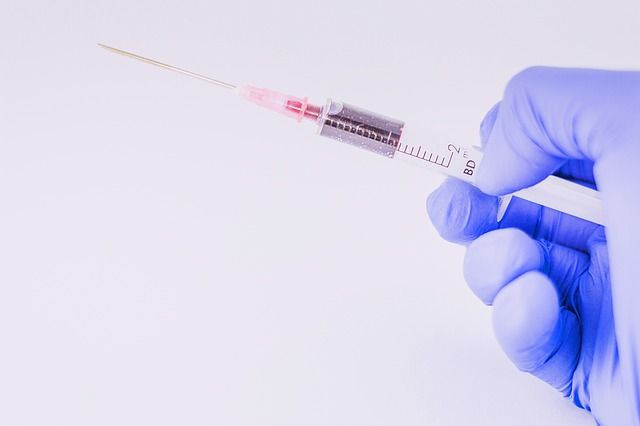Genital Herpes Vaccine GEN-003 Prevents Viral Shedding, Reducing Risk Of Outbreaks And Transmission

Although not life threatening, the pain and social stigma of genital herpes can be devastating for those with recurrent symptoms. Unfortunately, there is no cure for the skin condition, but new clinical research suggests that we may be closer than ever to controlling these reoccurring outbreaks. In recent trials, a new vaccine was successful in keeping these often painful and stress-inducing outbreaks at bay, giving relief to those living with the virus.
The drug is named GEN-003 and is produced by Genocea Biosciences, Inc. In a recent trial, GEN-003 was given to 310 volunteers with a history of chronic, recurrent genital herpes. Herpes is a virus, which means that once contracted, it always remains in your system. In the case of herpes, the virus will occasionally shed, causing it to leave the nerve cells where it usually resides and relocate to the surface of the skin. In some cases, this may cause painful sores to erupt, and it's during this viral shedding period that the virus can be passed on to others.
According to UPI, GEN-003 works differently than other herpes treatments and targets the T cells in the immune system to help manage the virus. Trial results revealed that a series of three injections of GEN-003 were successful in reducing viral shedding among the volunteers for up to 12 months. These results are important because they not only provide the volunteers with less painful outbreaks, but may also reduce their likeliness of spreading the virus to others. Although painful sores are the most obvious sign of viral shedding, it is possible to shed the virus without any visible signs. This is called asymptomatic shedding, and the virus is still very contagious at this time although an individual may feel fine.
According to the Herpes and Cold Sore Support Network, viral shedding both with or without symptoms is estimated to occur in 20 – 40 percent of days during the initial six months after exposure to the herpes virus. Thankfully, the chance of shedding is nearly cut in half after this first 6 months of infection, to just 5 to 20 percent of days. Shedding also differs depending on the strain of the virus an individual has contracted. Still, because it is nearly impossible to know exactly when an individual is experiencing a viral shedding of herpes, there is always a small chance of contracting the virus. This is a particular concern for individuals in a mixed relationship where one partner is infected with the virus and the other is not.
According to the Centers for Disease Control and Prevention, genital herpes is the most common STD in the United States and occurs in one out of every six people aged 14 to 49. While is it too soon to say if GEN-003 is effective, according to a recent statement, the results seen in the clinical trial “demonstrate the potential of the vaccine’s concept, which we hope will lead to a partnership to advance this program.”
Published by Medicaldaily.com



























